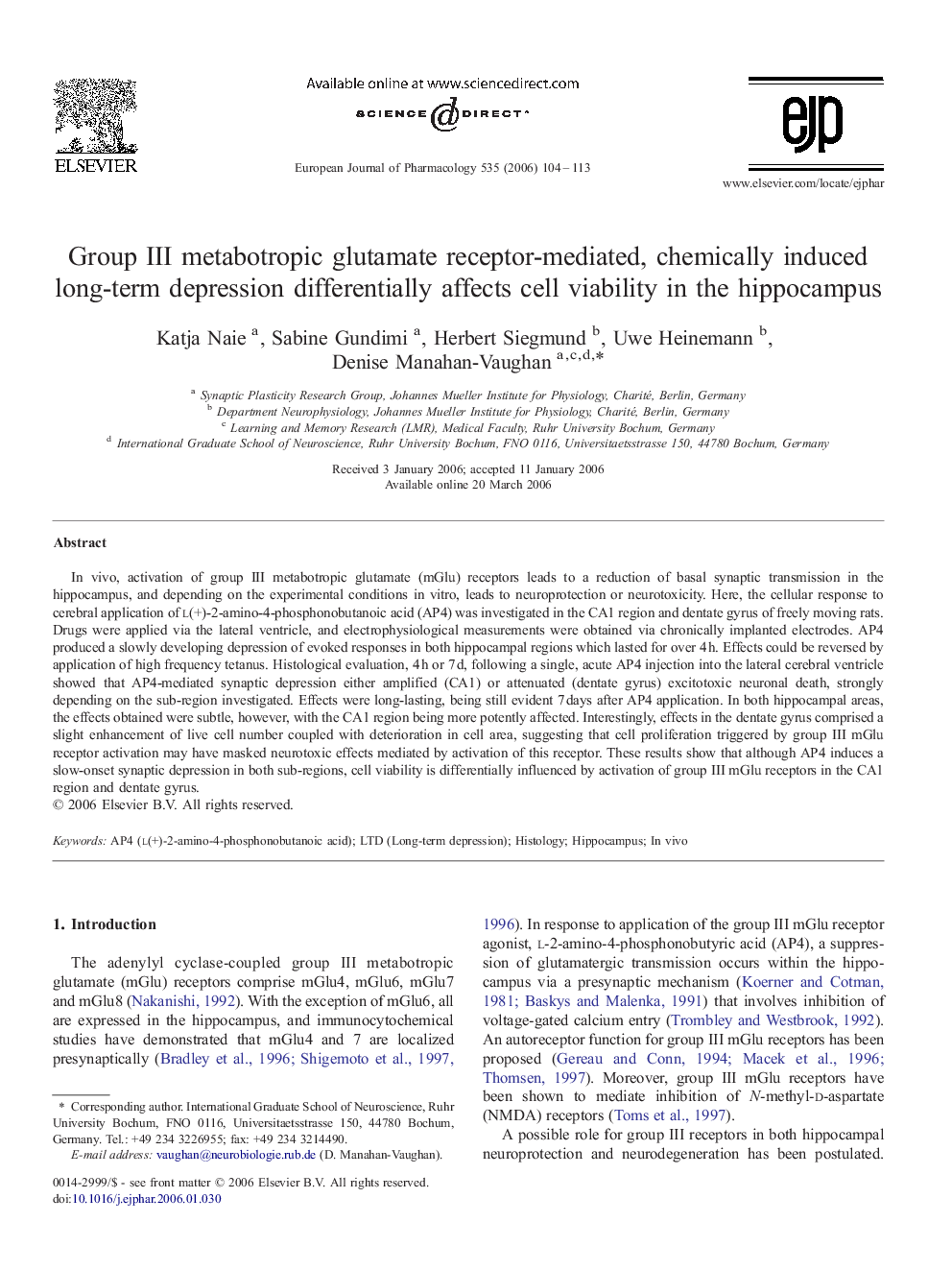| Article ID | Journal | Published Year | Pages | File Type |
|---|---|---|---|---|
| 2537239 | European Journal of Pharmacology | 2006 | 10 Pages |
In vivo, activation of group III metabotropic glutamate (mGlu) receptors leads to a reduction of basal synaptic transmission in the hippocampus, and depending on the experimental conditions in vitro, leads to neuroprotection or neurotoxicity. Here, the cellular response to cerebral application of l(+)-2-amino-4-phosphonobutanoic acid (AP4) was investigated in the CA1 region and dentate gyrus of freely moving rats. Drugs were applied via the lateral ventricle, and electrophysiological measurements were obtained via chronically implanted electrodes. AP4 produced a slowly developing depression of evoked responses in both hippocampal regions which lasted for over 4 h. Effects could be reversed by application of high frequency tetanus. Histological evaluation, 4 h or 7 d, following a single, acute AP4 injection into the lateral cerebral ventricle showed that AP4-mediated synaptic depression either amplified (CA1) or attenuated (dentate gyrus) excitotoxic neuronal death, strongly depending on the sub-region investigated. Effects were long-lasting, being still evident 7 days after AP4 application. In both hippocampal areas, the effects obtained were subtle, however, with the CA1 region being more potently affected. Interestingly, effects in the dentate gyrus comprised a slight enhancement of live cell number coupled with deterioration in cell area, suggesting that cell proliferation triggered by group III mGlu receptor activation may have masked neurotoxic effects mediated by activation of this receptor. These results show that although AP4 induces a slow-onset synaptic depression in both sub-regions, cell viability is differentially influenced by activation of group III mGlu receptors in the CA1 region and dentate gyrus.
